ORU Kayak review
Summary and conclusionMy impression of the ORU kayak after using it for some days is very good. A kayak review is dependent on padling style and expectations, but considering that the ORU is a 13 kg portable kayak that you can take on a bus, it behaves very well in a lot of conditions. For normal use it is probably good enough as it is, but I would modify it to work better in rough conditions, since I believe this boat has a lot of potential. A packraft is better for whitewater and for areas where you have to carry your boat for long distances. The ORU acts more like a normal kayak that can be kayaked in windy conditions for longer distances. Compared to a Feathercraft it is much more practical and easy to assemble. I would recommend people to test the ORU Kayak to see if it fits their needs. I would not replace a normal sea kayak with an ORU, but for travel the ORU kayak is great. If I owned one, I would probably have it permanently in the trunk of my car, and use it to explore new areas with my camera. For those that want the details, read the review below. ORU kayak website: http://www.orukayak.com/ Thank you to Hattvika Lodge and Espen Ramsbacher, the norwegian distributor of ORU kayaks for letting be try out the ORU kayak in Lofoten Islands. Thank you to Kristoffer Vandbakk for taking photos of me at Bunes beach. My backgroundI have kayaked for about 12 years and have experience with a lot of different kayaks. I mainly use a Rockpool Taran 18 as my touring sea kayak and a NDK Romany classic as a play boat. For surf and rockhopping I have experience with P&H Hammer that is a short rockered crossover boat. I have also used a Seabird Designs North Sea for many years and like this boat for touring. ORU KAYAK AssemblyThe ORU kayak Bay+ 12″ kayak comes packed in a large backpack. The assembly of the kayak takes about 10 minutes and is relatively easy to assemble. Compared to the Feathercraft kayaks, that take up to 45 minutes to build, the ORU kayak is much more practical. The ORU does not come with floatbags, but these are an optional accessory. I would not recommend using the ORU at sea without using floatbags in the front and rear. The clips that keep the kayak together on the bay+ model is an improvement over the bay model and makes the assembly easier and the boat more robust. The bay+ also comes with a small waterprof compartment that stayed dry even after kayaking in the surf zone. The kayak has room for gear both the front and back, that has to be inserted while setting up the kayak.
ORU KAYAK CockpitThe cockpit has enough room for most people. I am 180 cm high, and had no problem with entering the kayak or feeling comfortable in the cockpit. The seat is very minimalistic and some people complained about it after paddling for longer periods of time. The foot braces are very bad compared to a good sea kayak. The support for the knees is also not the best. These things are minor issues that I would modify if I would regularly use this kayak in rough conditions. For use in normal conditions I did not feel that these things were a problem. I like the seat that comes with the Feathercraft Khatsalano. Feathercraft also makes the seats for alpackarafts. Using a Feathercraft seat would be an option, but I do not feel that it is an essential upgrade.
StabilityI felt that the ORU kayak was very stable and predictable. It was much stiffer and handled much better than I expected. Since it is a short kayak it is very maneuverable and fun to paddle. The low weight of 13 kg makes it very fast to accelerate. I was able to keep up with standard sea kayaks both downwind and upwind. My impression is that the Oru Kayak is stable enough to use for photography. It is great for exploring new places that requires a short hike to reach the water. The maneuverability of the kayak is also very nice for photographing from the kayak. The tracking is not bad, considering that this is a short kayak. This boat would be nice to have in Iceland and on mountain lakes in Norway.
Wind and wavesI wanted to test out the ORU Kayak on a longer trip and decided to paddle it from Reine to Bunes. The distance is about 6 km in Reinefjord and Bunesfjord with a small tidal current between the 2 fjords. Paddling the ORU against the wind and waves was very fun and the ORU behaved well in these conditions.
Although the ORU is short it is much easier (faster) to paddle in these conditions than crossover kayaks with a skeg like the P&H Hammer. Some of the waves were washing over the deck of the kayak, and even though it is not completely watertight, only a minimal amount of water entered the kayak.
Due to the portability the ORU kayak enables people to explore new places in an easier manner.
PortageAfter the paddle to Bunes I had to carry the kayak to the beach that is located about 2 km over a hill on the western side of the island. I decided not to disassemble the kayak since it was easy enough to carry as it was. 13 kg is not much for short hikes. For a longer portage, I would probably pack the ORU down in the backpack and assemble it again on the beach.
Bunes beach can be reached by kayaking the exposed western coast of Moskenes Island, but it requires much more time and planing. Using the Oru was an alternative way to explore this wonderful area in a shorter time frame.
Surf zoneThe surf zone at Bunes beach had small waves that day, but I felt it was rough enough to capsize the ORU. Since I had borrowed the ORU, I wanted to avoid damaging it in the surf and decided to kayak conservatively. I wanted to test the ORU in these conditions since these are conditions I may end up in while exploring new places.
Last year I reached this beach by kayaking along the north western coast of Moskenes Island with Kristoffer Vandbakk. That time we had fully loaded sea kayaks. It was nice to be back here with a light, short maneuverable kayak.
The ORU handled very nice in the small waves. I was appreciating the maneuverability of this kayak in these conditions.
I used float bags in the front and rear of the kayak in case I capsized and had to swim in. The ORU behaved in a predictable manner both kayaking out and surfing back to the beach.
Although I did not like the footrests and felt that I had little support for my knees, The ORU was controllable in the surf while getting hit by waves from the side. The ORU is not designed mainly for these conditions, but with a few modifications to the foot and knee braces, this would be a very fun kayak to use in small waves.
A short sea kayak or a crossover boat like the P&H hammer is of course better in these conditions, but considering that the ORU is a light portable boat that you can take on the bus, it handles great in these conditions.
The ORU took in some water when getting hit by the breaking waves. If I would use it for longer periods of time in these conditions, I would probably use duct tape to seal the deck of the kayak. The rim of the cockpit worked great with my sprayskirt.
Surfing the ORU on the small waves was fun. Due to the short lenght of the kayak the ORU is more controllable in these conditions that longer sea kayaks. With good foot and knee braces, this kayak would handle even better in these conditions. This would add some weight to the kayak, but it is a modification I would do if I had my own ORU.
Thanks to Kristoffer Vandbakk who took a lot of photos of me from Bunes beach.
DownwindAfter the kayaking on Bunes beach, I carried the kayak back to Bunesfjord to paddle back to Reine. The ORU behaved well downwind and in the small tidal current, mainly because of the maneuverability.
It would be difficult to keep up with a Rockpool Taran 18 going downwind, but keeping up with normal kayaks is not a big problem.
The ORU surfs quite well and is predictable in waves.
Getting hit by waves from the side was not a problem. I had a lot of fun kayaking the ORU in these conditions. SummaryMy impression of the ORU kayak after using it for some days is very good. A kayak review is dependent on padling style and expectations, but considering that the ORU is a 13 kg portable kayak that you can take on a bus, it behaves very well in a lot of conditions. For normal use it is probably good enough as it is, but I would modify it to work better in rough conditions, since I believe this boat has a lot of potential. A packraft is better for whitewater and for areas where you have to carry your boat for long distances. The ORU acts more like a normal kayak that can be kayaked in windy conditions for longer distances. Compared to a Feathercraft it is much more practical and easy to assemble. I would recommend people to test the ORU Kayak to see if it fits their needs. I would not replace a normal sea kayak with an ORU, but for travel the ORU kayak is great. If I owned one, I would probably have it permanently in the trunk of my car, and use it to explore new areas with my camera.
If you have any questions please contact me at tomasz@furmanek.com Tomasz Furmanek
|








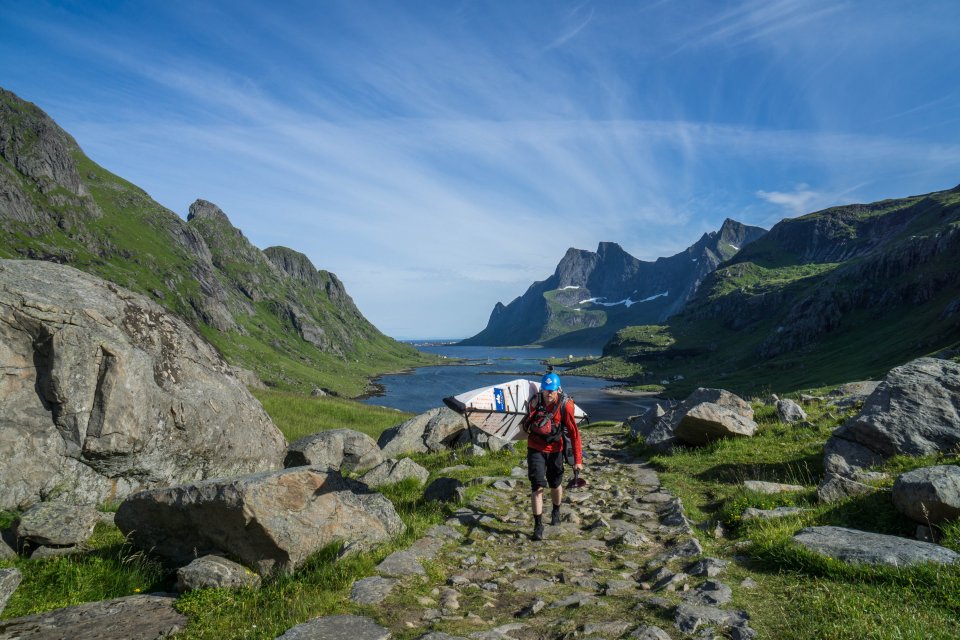
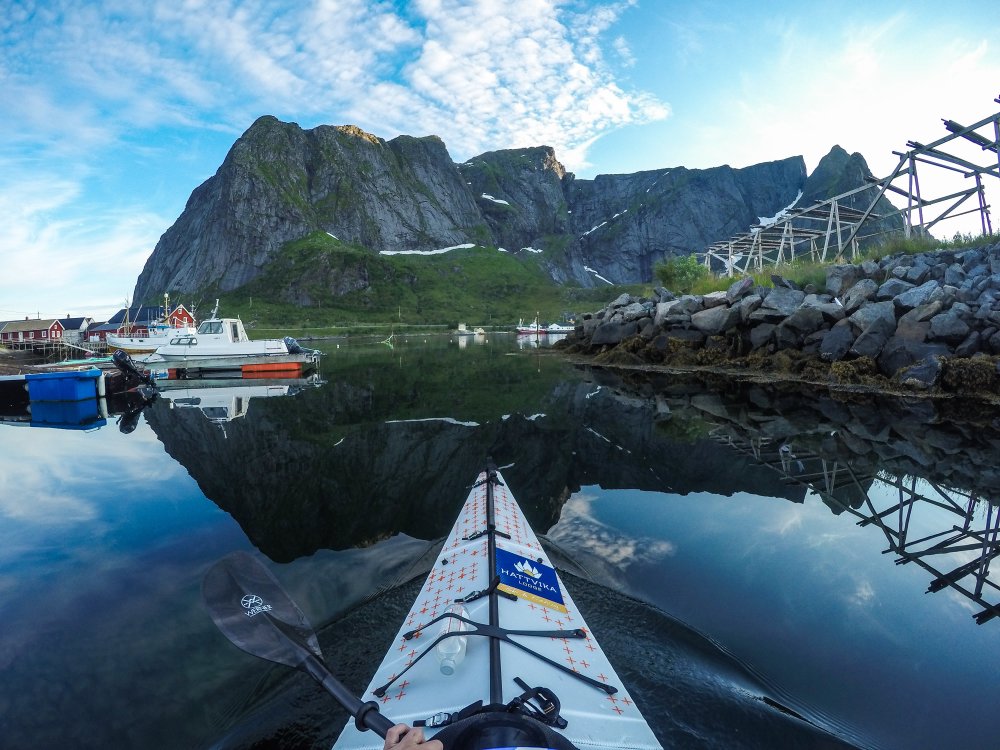
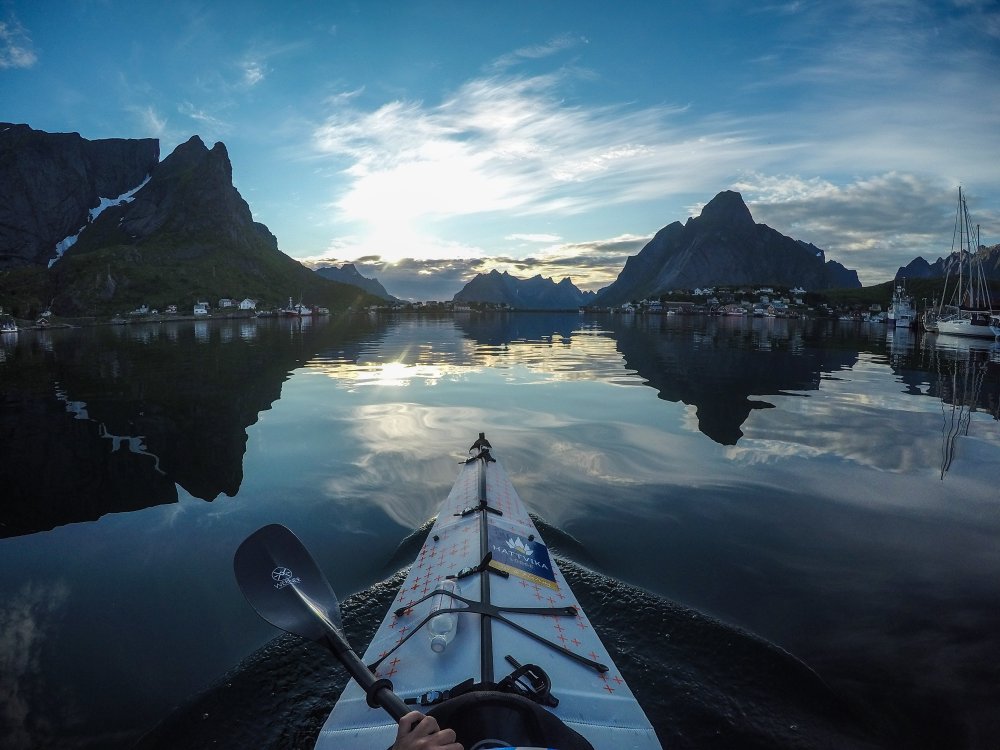
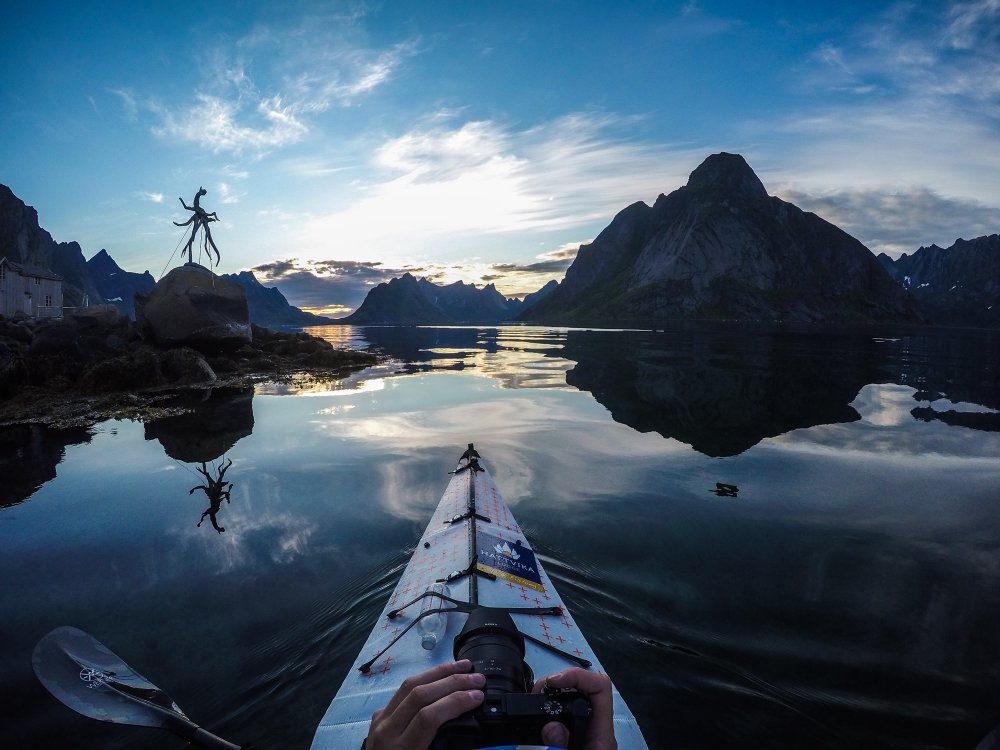
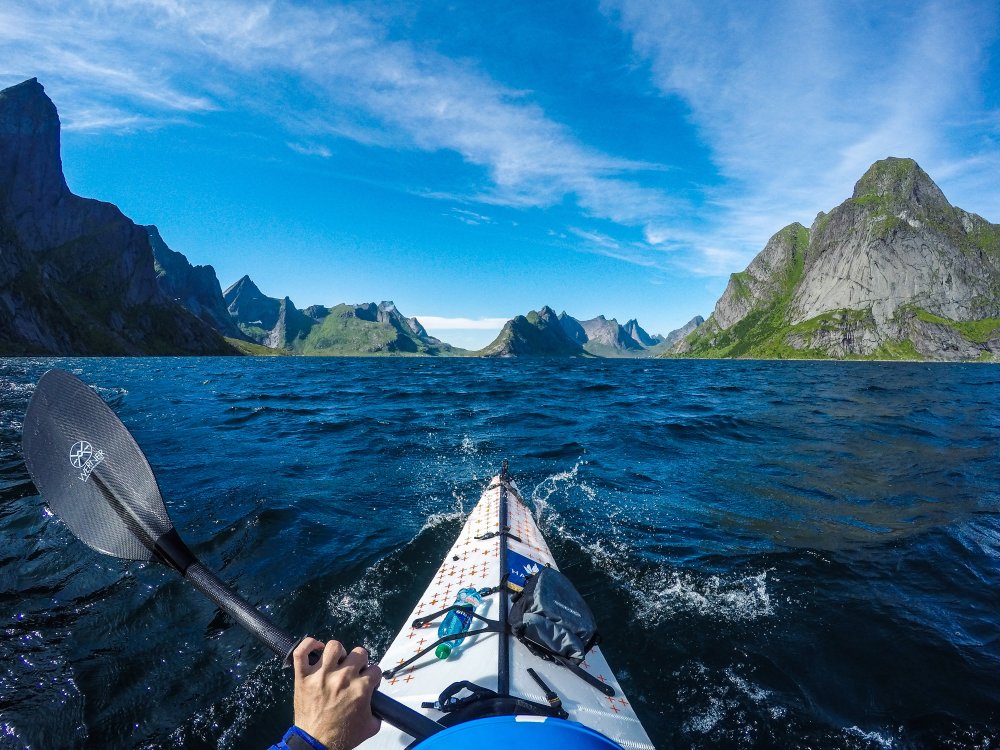
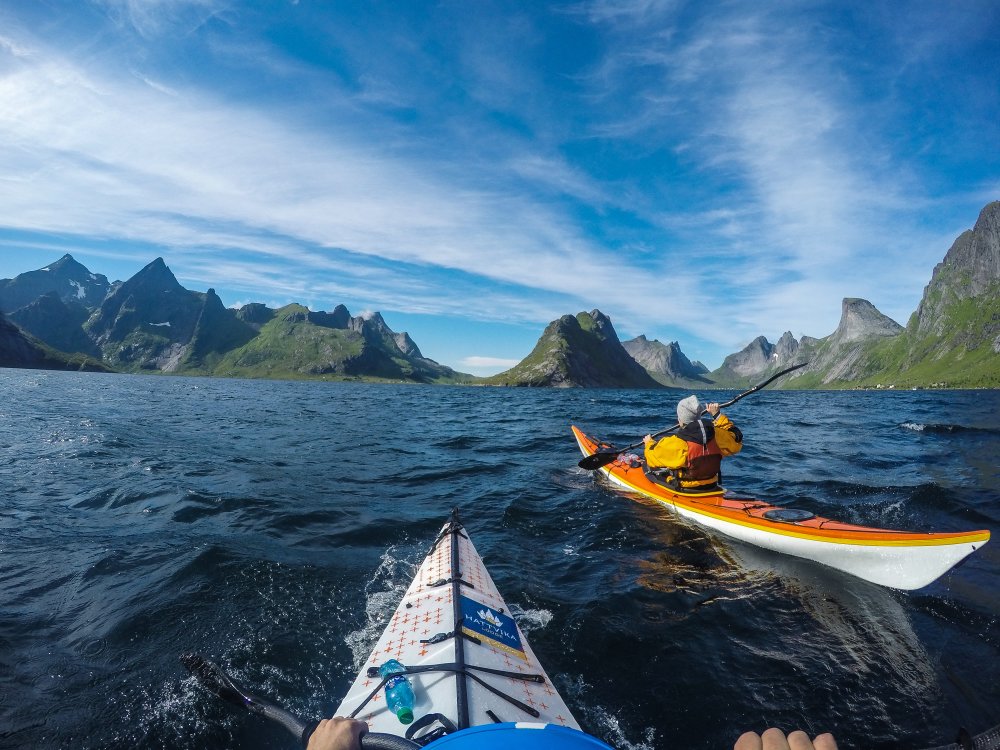
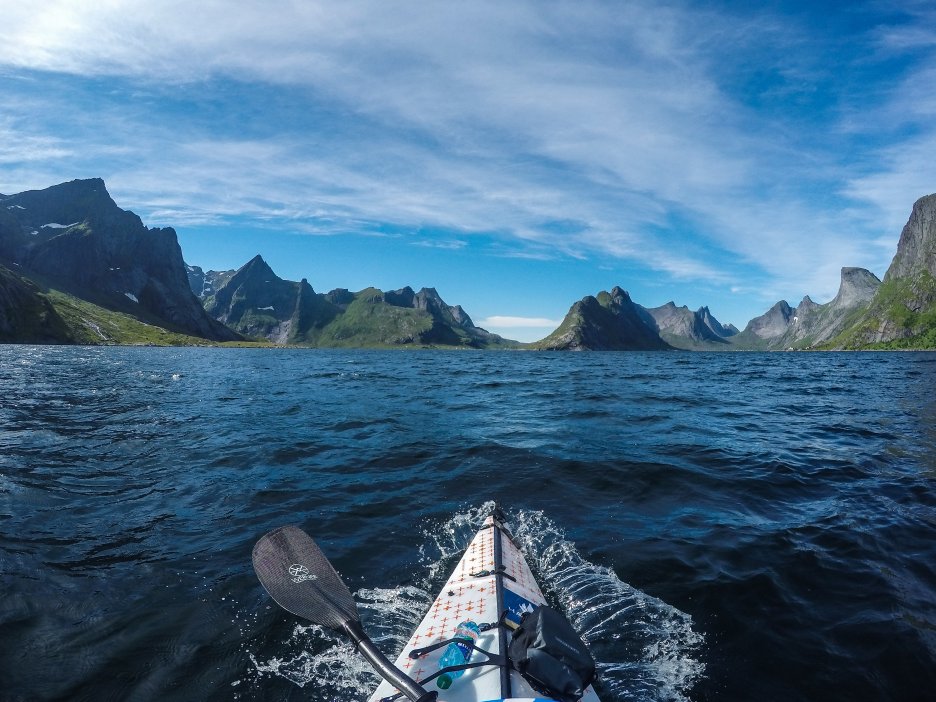
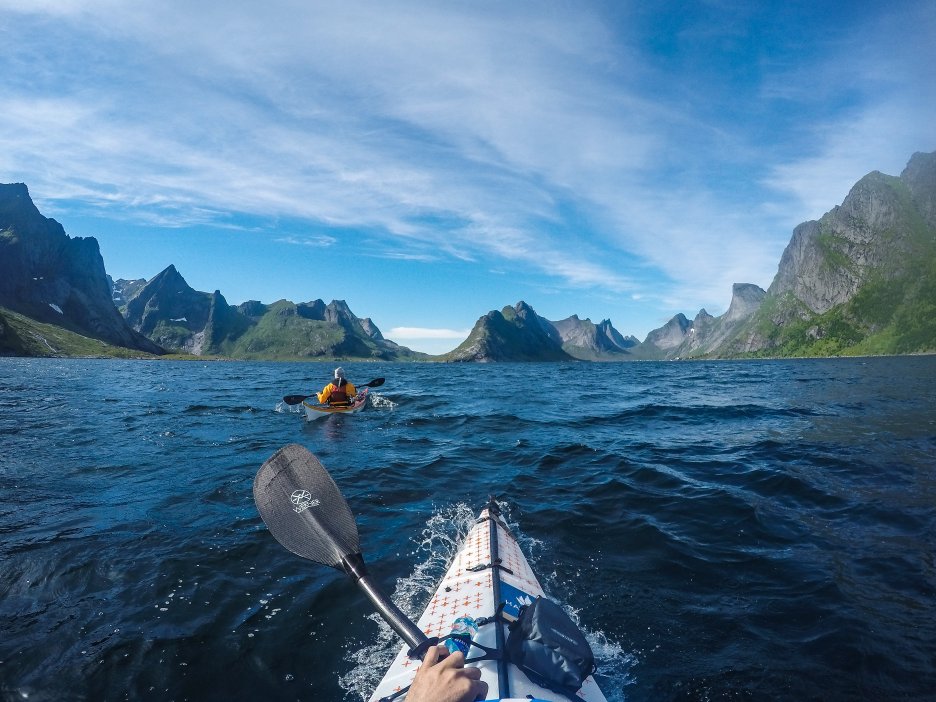
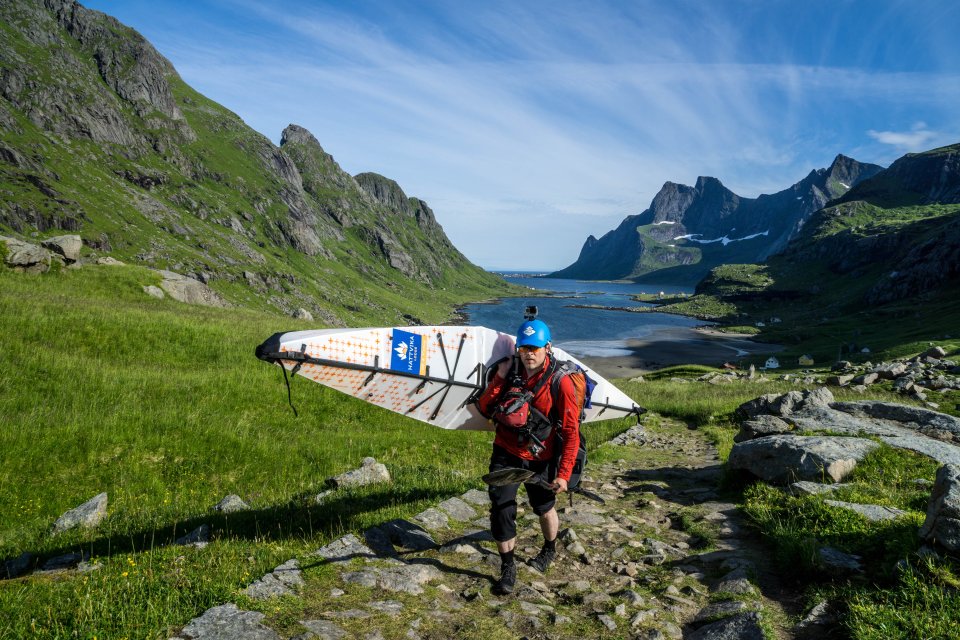
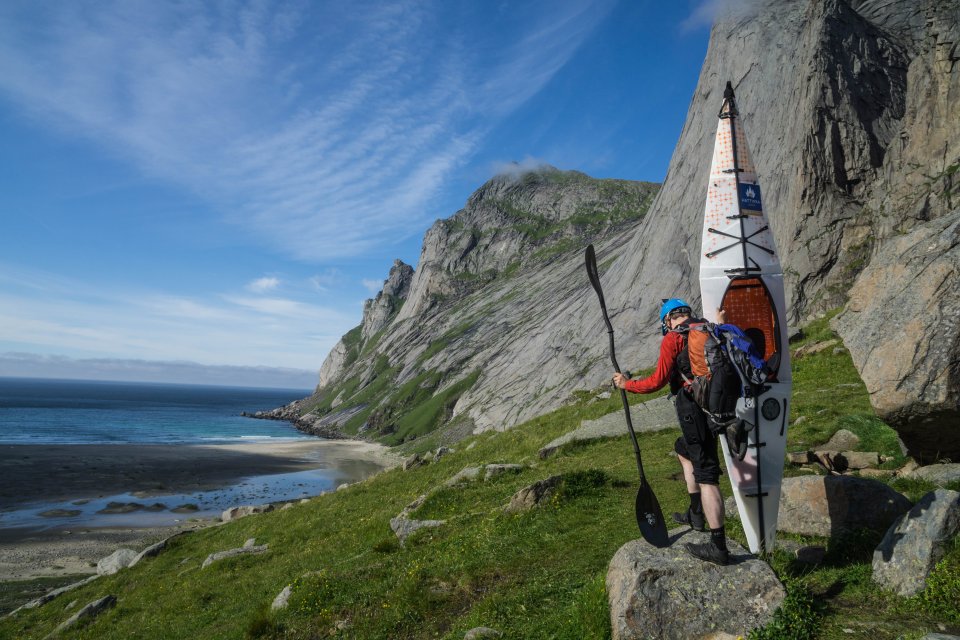
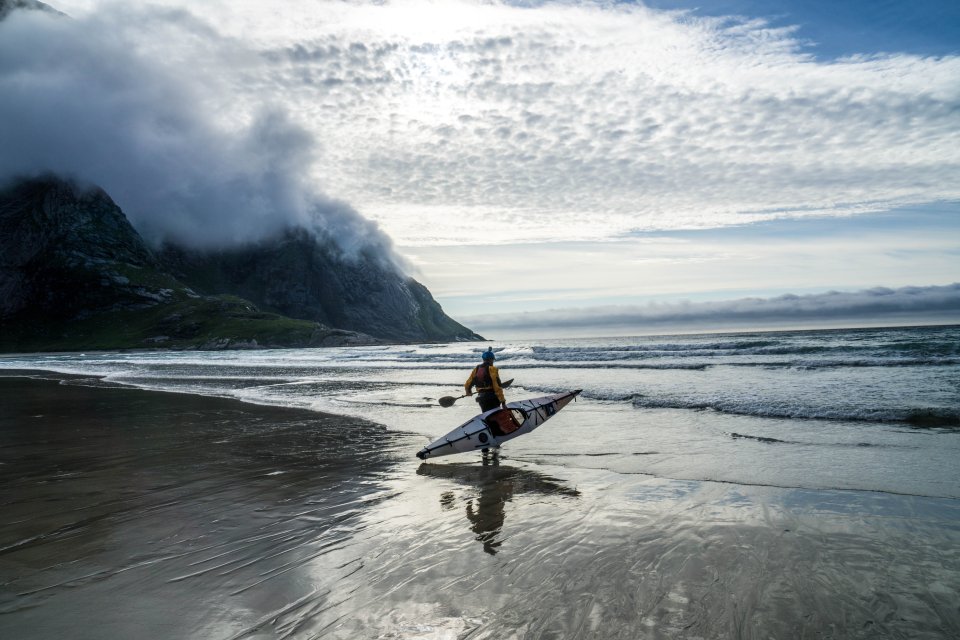

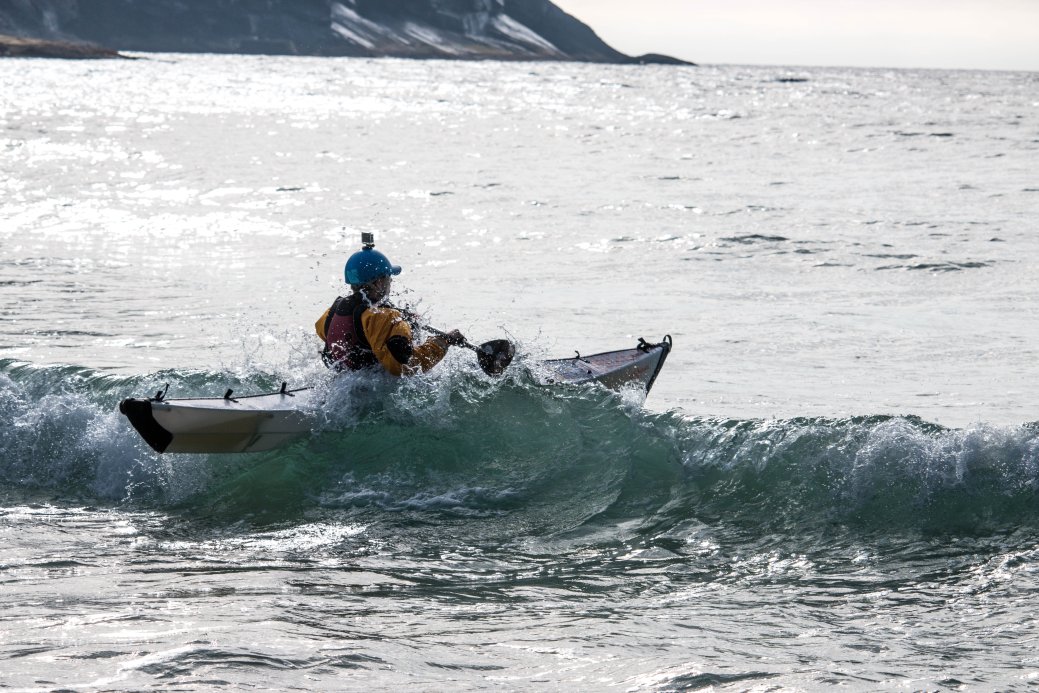
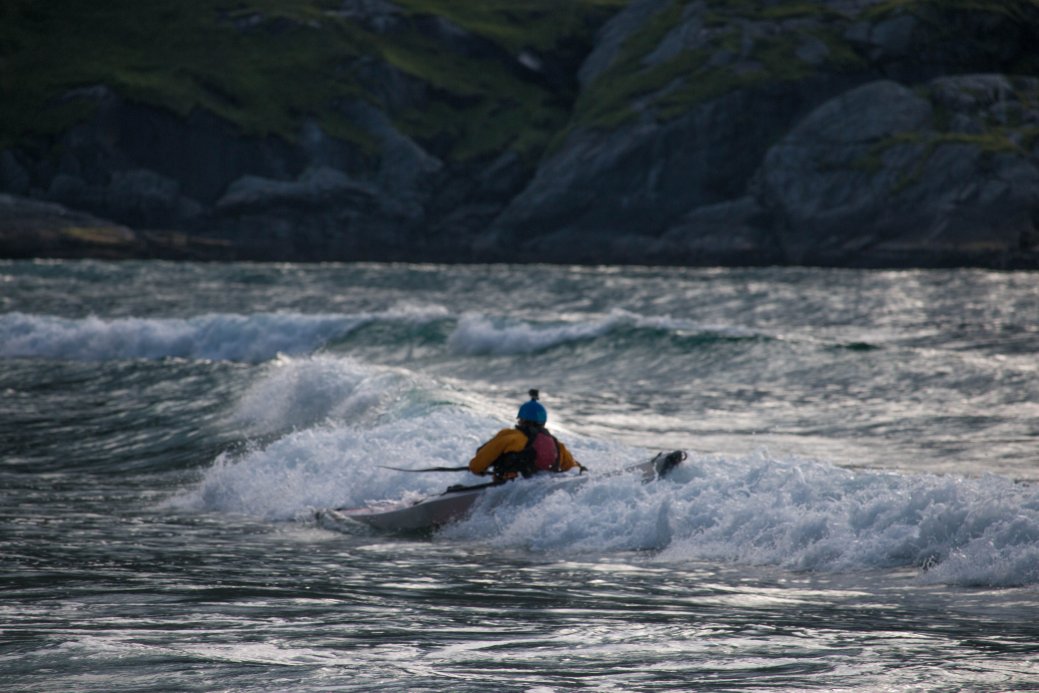
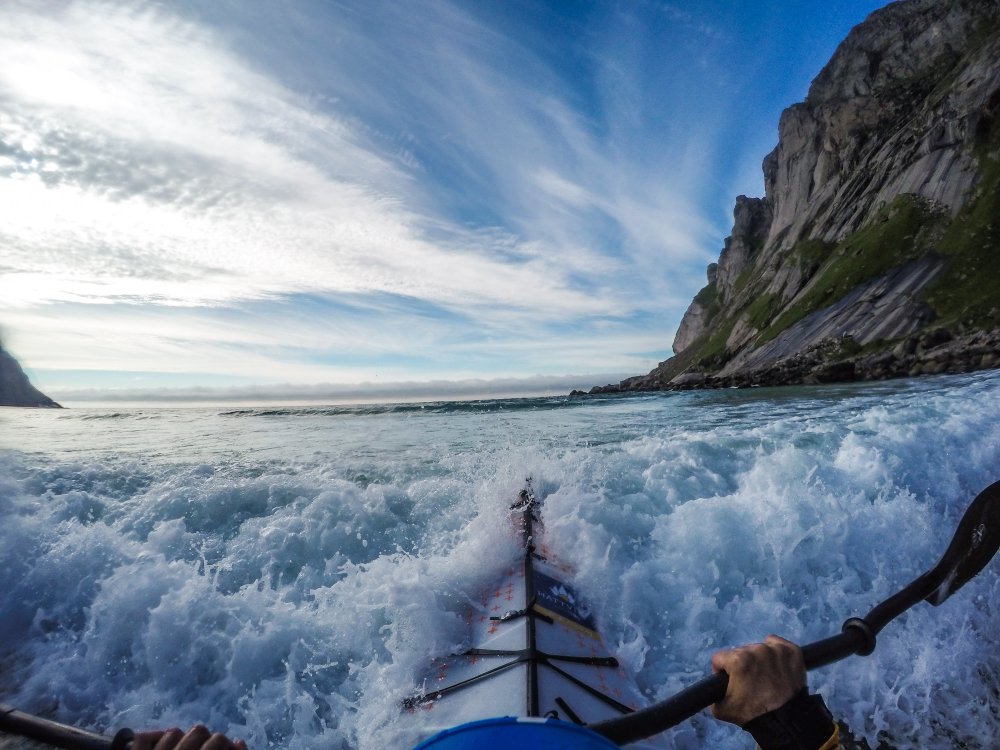
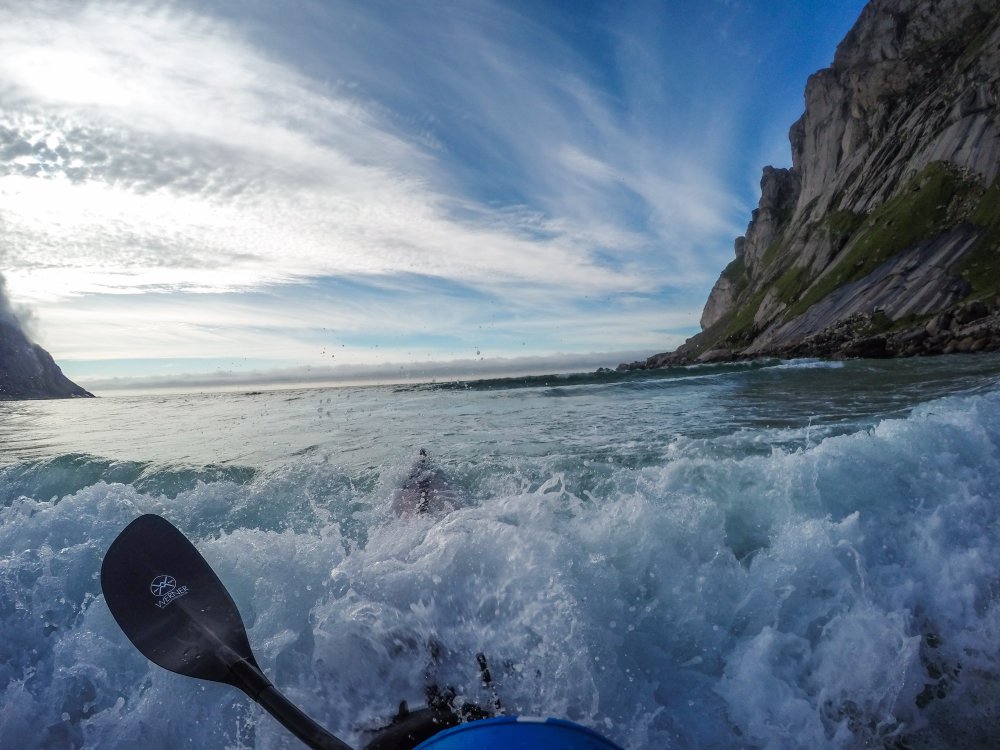
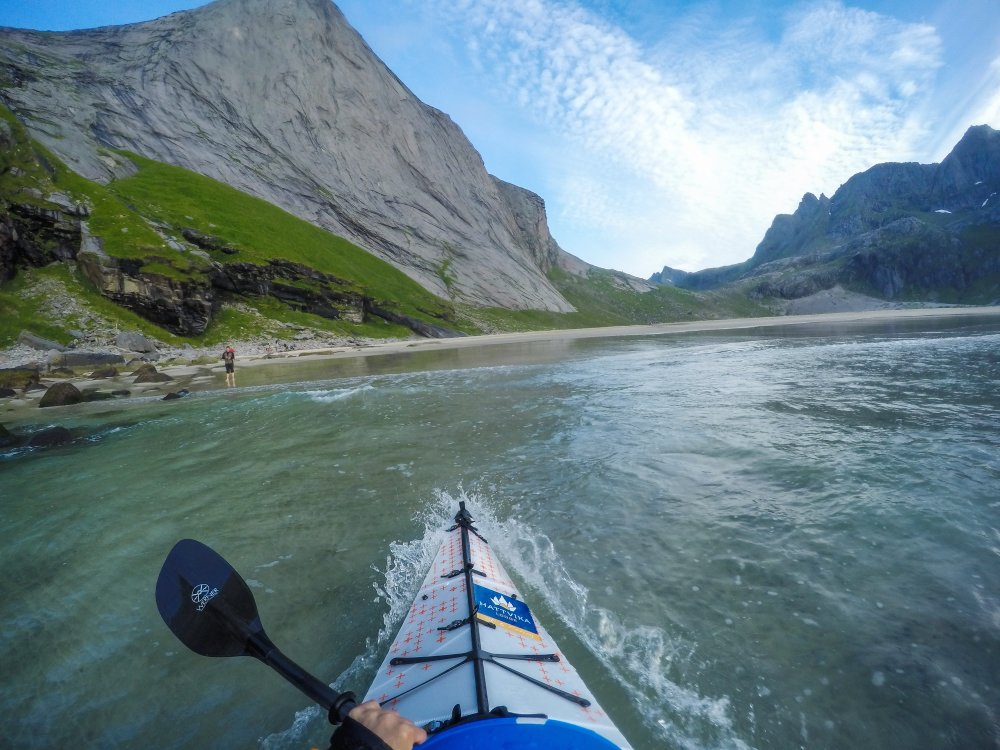
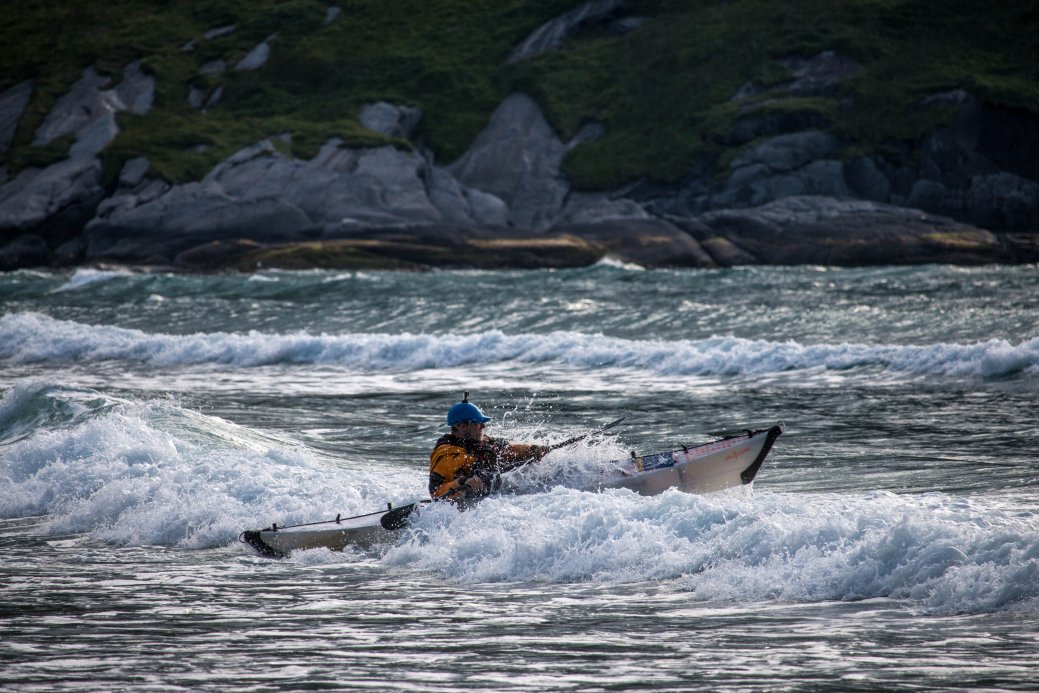
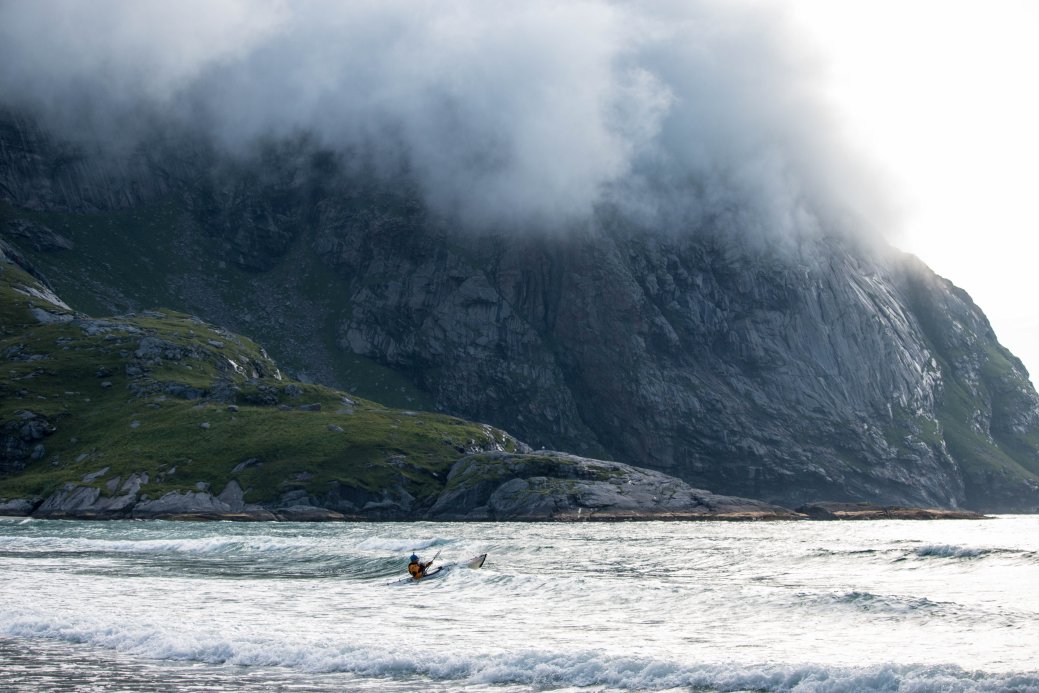
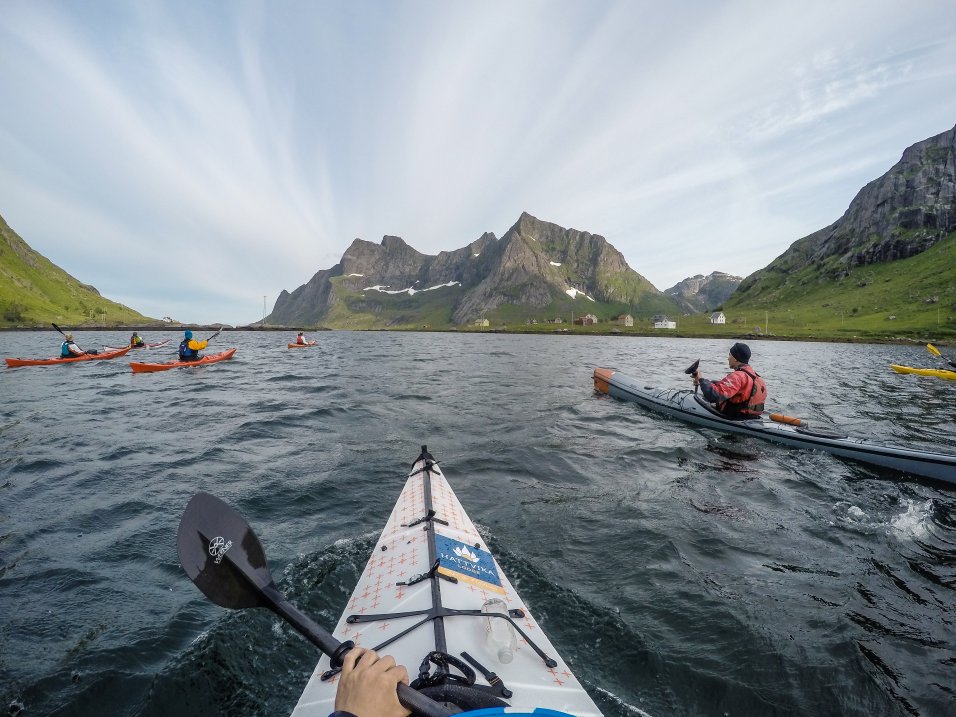
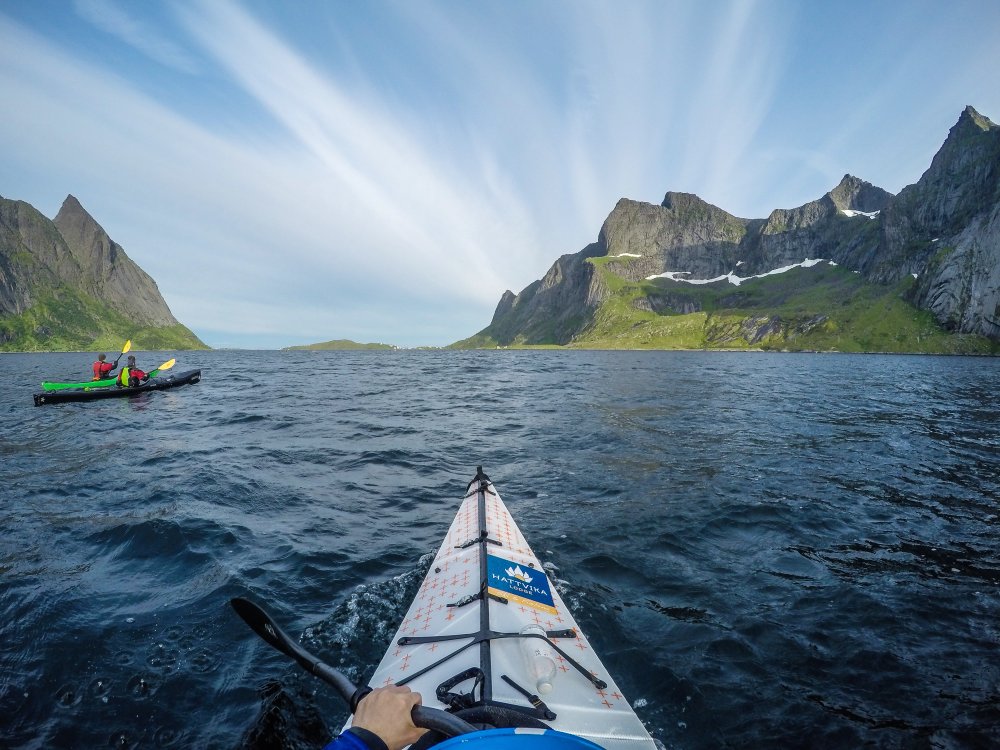
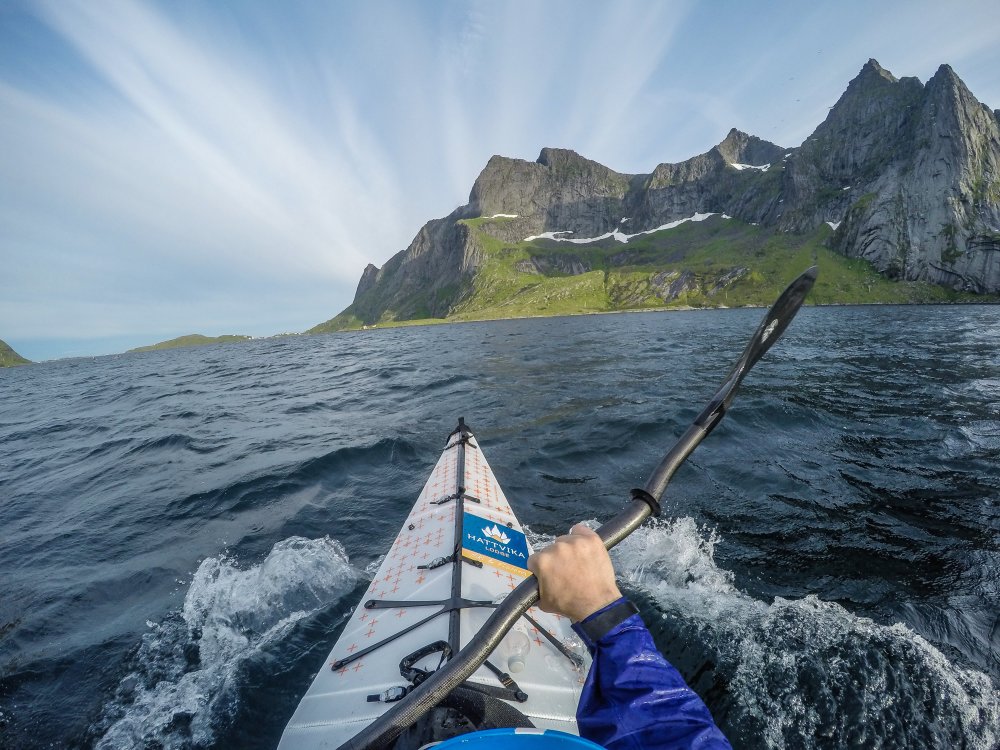
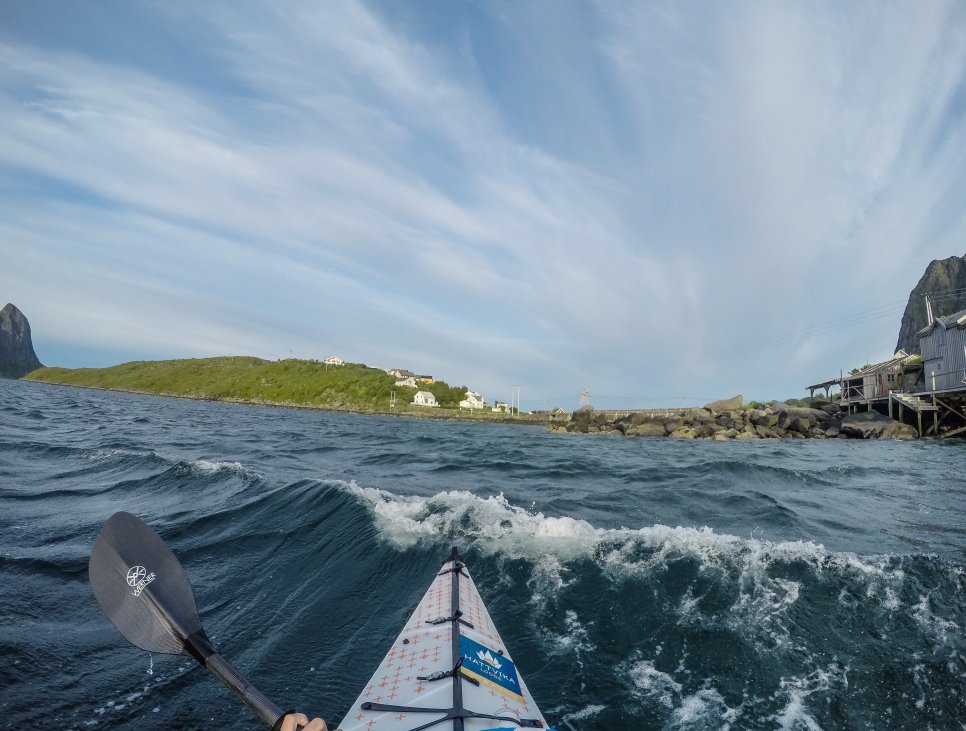
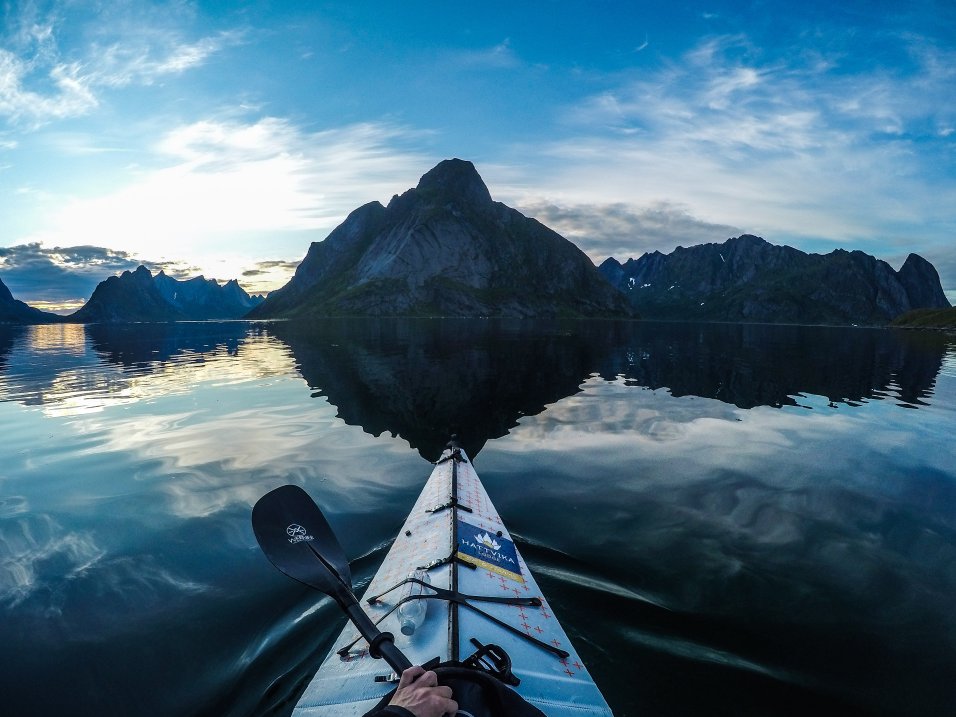
Tomasz, THANK YOU for your comprehensive and balanced review of the ORU Kayak. Thank you also for the fantastic photos and the micro adventures you explored outside the ORU Kayak box ;). I will share your review and photos with the global ORU Kayak community and potential buyers. A huge thank you to Kristoffer Vandbakk and to Krisitan Bøe at Hattvika Lodge